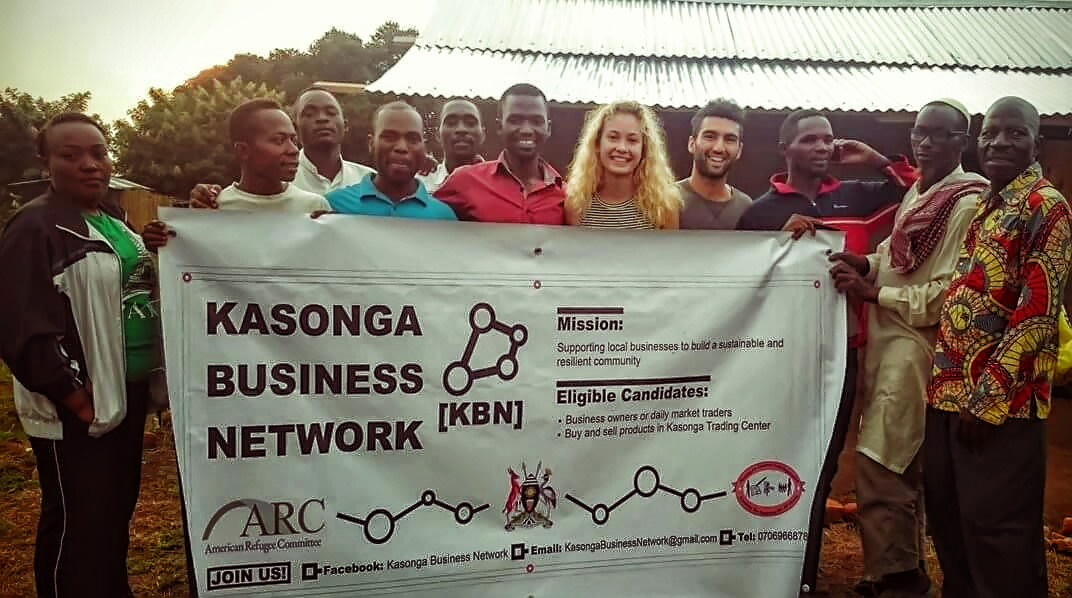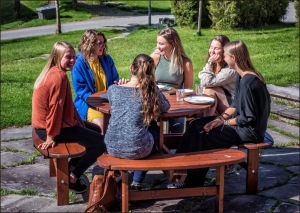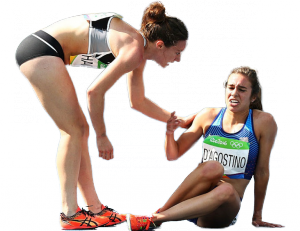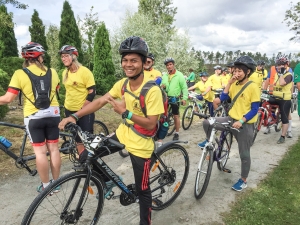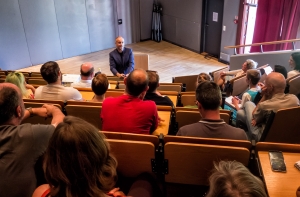Julia Makayova (’12 – ’14)
Since graduating from RCN in 2014, I have been studying at Macalester College in the Midwestern US. As a true liberal arts student, I launched into a Psychology major with Dance, Hispanic Studies and Critical Theory minors during my first year. However, after a summer of earnest dialogues with myself, I dropped all my pre-registered classes and declared Political Science as my major. I wasn’t sure what I wanted to do with it, I just knew that it was time to learn what ‘real’ things people do in the world. Around March, as I was agonizing over hopeless internship rejections, I met a group of three Macalester students who had received a grant to pilot a project in a refugee settlement in Uganda. By May I had become a member of the team and was busy catching up on the project and planning the trip to Kyangwali Refugee Settlement in Western Uganda.
Kyangwali is home to about 40,000 refugees mainly from the Democratic Republic of Congo (84%), South Sudan, Rwanda, Burundi and Kenya. We went there working with Human Centered Design methodology – learning community needs on the ground without previous assumptions and rapidly prototyping a solution-project. After a month of interviews, surveys, focus groups and research activities, we had painted a picture of Kyangwali. We decided to pilot a community organization – a business network– that would use complementary currency to help boost the local economy and support entrepreneurial initiatives.
To experience Kyangwali Refugee Settlement has been the most challenging thing I’ve done in my life. Going there I thought I knew everything about white privilege and class dialectic – I was convinced I could avoid the traps of prejudice, supremacy and classism. It turned out, I was thinking exactly like a ‘proper’ elitist girl. I felt the worst when my refugee friend shared with me his plans to continue his education in the US. I hastily asked which BA degree he was considering. He humbly replied that he was looking at PhD in Epidemiology at Brown. I started fearing that I was not humanitarian enough for what I was doing there.
After weeks of self-examination and feeling guilty, wondering if I could change, I started to notice and appreciate the abundance of human capacity in Kyangawali – there are so many bright, inspiring, motivated individuals who care about their community and have so much to contribute. However, since 1997 – when Kyangwali hosted first refugees, many people have become jaded by the endless struggles to survive. This is why a group of local refugees created a Community Based Organization, Planning For Tomorrow (P4T), with a vision of a healthy and self-reliant community that is empowered with knowledge and skills.
In our own project, we also see sustainability and self-reliance as a key to bend the traditional dichotomy of ‘beneficiary’ and ‘recipient’. P4T’s vision aligned with ours and we partnered with them to implement the business network pilot.
I learned that refugees also struggle to live with the reality of their plight while preserving agency and dignity. “Being considered a refugee has two sides: first of all, it is safe because unlike those illegal immigrants, we are protected. On the other hand, refugees are undermined,” says Daniel Ameny. “They are looked at as stateless people who are traumatized and unable to contribute anything to the society. The educated refugees are not given equal opportunities in employments, contracts and businesses. To prosper when you are a refugee requires extraordinary efforts. But refugees are like any other people with skills to provide services and develop themselves. They have innovative ideas to their problems and they can create positive change when empowered.”
Despite the challenges, P4T members amazed me with their creative problem-solving. “Lack of resources creates an opportunity to innovate,” says P4T’s Executive Director, Bienvenue Byamungu. To learn more about Kyangwali Refugee Settlement and discuss how you could co-create with local people and connect with a team of refugees running P4T you can reach them at planningfortomorrow@yahoo.com or visit their website and facebook page. You can also contact me at jmakayov@macalester.edu to get directed to other resources.
“Only mountains don’t meet, people do,” my Ugandan friend wrote in the first email that I read, full of emotions, after returning home. He wanted to remind me that people should re-unite and keep creating together. Our pilot in Kyangwali is still underway with incredible support from P4T and community leaders who will take over the project.
The enthusiasm and courage that the Kyangwali community shared with me inspired me to always seek abundance in scarcity. Having lived in such an apparently hopeless place, I’ve never felt so hopeful in my life – what a tricky paradox! There I dared to stop just thinking and analyzing, and started doing. I’m looking forward to seeing what we co-create next.
…………………………………………………………………………………………
For profiles and news of other students and alumni, click here.
Please contact us if you would like to share what you are doing.

